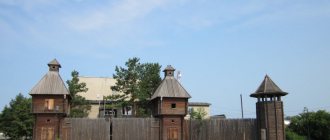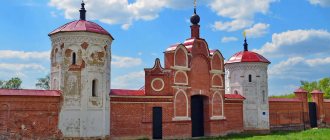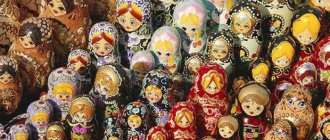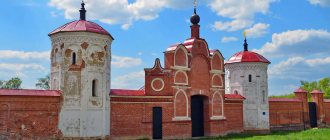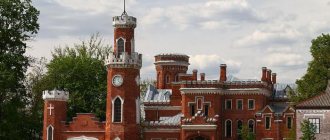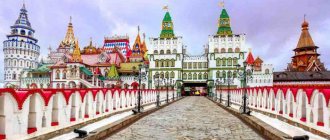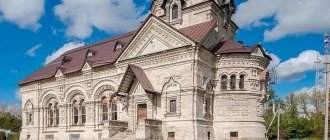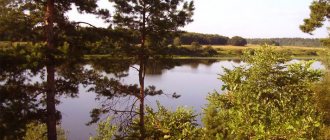If we consider the Central Federal District, then in its southwestern part you can see a small area dissected by a large number of rivers. This is the Kaluga region. According to scientists, settlements existed on this land for several thousand years BC. On the satellite map of the Kaluga region, borders with several regions are visible:
- Tula;
- Bryansk;
- Orlovskaya;
- Moscow;
- Smolenskaya.
The regional center of the region is the city of Kaluga, located only 140 km from the Moscow Ring Road. The region has a developed infrastructure, the objects of which can be studied using a map of the Kaluga region by district. This convenient online service allows you to find any cities and towns, examine their structure, main and small streets, houses, administrative and natural objects.
The entire water system of the region belongs to the Oka basin. More than 2,000 rivers, rivulets and streams flow through the region. About 300 of them are longer than 10 km.
The main rivers that can be found on the map of the Kaluga region with diagrams:
- Protva;
- Ugra;
- Bolva;
- Ressa;
- Zhizdra;
- Oka.
There are about 500 peat bogs on the territory of the Kaluga region. The largest number of them is located in the western and northwestern parts of the region, through which the Ugra River and its tributaries flow.
What holiday is it today?
February 10, 2022, Thursday
Today are holidays, events: Diplomat's Day Tomorrow: World Sick Day Discovery of insulin
Today is the Orthodox holiday: St. Ephraim the Syrian. Venerable Ephraim of Novotorzhsky. Venerable Ephraim of Pechersk, Bishop of Pereyaslavl. Venerable Theodosius of Totem, Spasosumorin of the monastery, leader and founder... Tomorrow: Transfer of the relics of the holy martyr Ignatius the God-Bearer. Saints Gerasim, Pitirim, Jonah, bishops of Great Perm, Ustva...
Today is a national holiday: Ephraim's Day... Tomorrow: Lawrence's Day
Population
| Population | ||||||
| 1931[5] | 1939[6] | 1959[7] | 1970[8] | 1979[9] | 1989[10] | 2002[11] |
| 49 187 | ↘37 858 | ↘24 421 | ↘23 490 | ↘18 343 | ↘16 105 | ↘13 952 |
| 2009[12] | 2010[13] | 2011[14] | 2012[15] | 2013[16] | 2014[17] | 2015[18] |
| ↘11 898 | ↗14 137 | ↘14 043 | ↘13 694 | ↘13 531 | ↘13 375 | ↗13 540 |
| 2016[19] | 2017[20] | 2018[21] | 2019[22] | 2020[23] | 2021[2] | |
| ↗13 687 | ↗13 861 | ↘13 670 | ↘13 277 | ↘13 206 | ↗13 280 | |
Seasons
Seasons, four periods of the year (spring, summer, autumn and winter) characterized by certain average temperatures. The period during which the Sun passes through one of these sectors is called the season. Spring in the Northern Hemisphere and autumn in the Southern Hemisphere begin when the Sun passes through the initial circle of declination and its right ascension is 0° (vernal equinox). Summer in the Northern Hemisphere and winter in the Southern Hemisphere occur when the sun's right ascension is 90° (summer solstice). Autumn in the Northern Hemisphere and spring in the Southern Hemisphere begin when the sun's right ascension is 180° (autumnal equinox). The beginning of winter in the Northern Hemisphere and summer in the Southern Hemisphere is considered to be the winter solstice, when the direct ascension of the Sun is 270°... Next: Seasons. Russian folk calendar. Monthly words...
Folk calendar about every day
Every day one season always replaces another and this determines a person’s way of life. In connection with this, a folk calendar was formed in which there were practically no nameless, unmarked days. Every day was special, had its own purpose. All this was determined by climate conditions and astrological phenomena.
A calendar is a system for counting periods of time. The first calendars arose a long time ago, in ancient times, because there was a need to measure time. The word calendar comes from the Latin words caleo - to proclaim and calendarium - debt book. This is due to the fact that in Ancient Rome the beginning of each month was especially proclaimed, and because it was customary to pay debts on the first day of the month. Different peoples counted time differently. Some calendars are based on the changing phases of the moon - lunar calendars; in others - the change of seasons - sunny; in others, the length of the year was coordinated with the change of seasons, and the counting of months was associated with the phases of the Moon. Such calendars are called lunisolar.
In Rus', the calendar was called a monthly calendar. Every day, the month book covered the entire year of peasant life, “describing” day by day, month after month, where each day had its own holidays or weekdays, customs and superstitions, traditions and rituals, natural signs and phenomena. The cyclical nature of the calendar is reminiscent of human life, where spring is youth, summer is heyday, autumn is the time of harvesting fruits (it’s good if there are some, otherwise you can live your life without collecting fruits), winter is the time of wisdom and peace. This cyclicality and rhythm determined the way of life of the farmer. The folk calendar was an agricultural calendar, which was reflected in the names of the months, folk signs, rituals and customs. Even the determination of the timing and duration of the seasons is associated with real climatic conditions. Hence the discrepancy between the names of the months in different areas... Next: Folk calendar...
Governor Shapsha is confused in the parties
The Kaluga region, like any Russian region of Russia, has long been fully plunged into the problems of uncontrolled migration flows and the maniacally pursued vicious national and labor policies in the country, the result of which is orgy of crowds of migrants, crimes against Russians, the disparagement of the interests of the Russian population, the creation of an anti-Russian international , reducing the role of Russian culture and traditions. A kind of non-Russian people are being created from Russia.
In the Kaluga region, to one degree or another, this applies to the regional center itself, Kaluga, and absolutely all districts of the region, in which from year to year local residents record more and more migrants from Central Asia, the Caucasus and internal migrants from the North Caucasus republics. All this flourished vigorously during the governorship of the former head of the region, Anatoly Artamonov, and continues “successfully” under the current governor, Vladislav Shapsha. “Flowers” turn into “berries” as they mature and the number of migrants approaches a critical level. However, the Kaluga region is not unique in this; all this applies to all regions and territories of Russia. The above problems in the Kaluga region are most clearly felt in the north of the region - the city of Obninsk, Borovsky, Zhukovsky districts, and a number of other territories close to the Moscow region.
Just a few recent incidents that have rocked the Kaluga region.
In October 2022, Viktor Kochetov, a football player from the Ermolinsky (Borovsky district) club, died after being beaten by migrants in the Kaluga region. As noted then, immediately after this crime, Karimov Allashukur, a native of Uzbekistan, left Russia; nothing is known about another participant in that “evening” named Shakir.
Also in October last year, over a hundred foreigners staged a mass fight in the city of Balabanovo (Borovsky district) right next to Victory Square. In total, about a hundred foreigners were taken to the Borovsky district police station, and a criminal case was opened for hooliganism. But there is almost no doubt that the vast majority were released (although they need to be deported), and the ringleaders received ridiculous suspended sentences. Meanwhile, this is not the first such case in Balabanovo. In early October, Balabanov residents were outraged by the fact that migrants in the same Victory Park were warming themselves in the evenings near the Eternal Flame.
On December 17, 2022, a fight with a stabbing occurred between migrants and a group of local young people in the town of Ermolino, Borovsky district. According to the migrants, as the “tolerant” media writes, the local guys deliberately touched them with their shoulders for no reason (well, of course, we all believe this). The second side of the conflict says that the migrants allowed themselves a verbal attack towards the girls (but this is closer to the truth, a familiar “scenario”). An anonymous entry in the community “Overheard in Balabanovo” states that the conflict was provoked by three Uzbeks who “decided to meet underage girls,” as Gazeta.ru writes. A friend of the victim’s family told the publication that the student was simply passing by and stood up for his friend. “They were walking, and these non-Russians beat someone they already knew, and they interceded,” she explained. As a result of the conflict, a 16-year-old Yermolin resident was stabbed. One of the migrants (!) stabbed him twice in the heart area. A local guy had to be sent by helicopter to the regional center for surgery. On social networks, the greatest indignation was received by a number of responses from regional structures, literally justifying migrants and shifting responsibility to local schoolchildren.
Remarkable statements by the Governor of the Kaluga Region Vladislav Shapsha after this incident can be heard at this link. The highest level of responsibility for the situation and understanding of the problems was demonstrated by the governor. It’s the same mantra that the liberal ideologists of the “Russian nation” constantly carry and attract millions of migrants to the country under the auspices of cheap labor. “The authorities of the Kaluga region (represented by the governor) called on residents to endure being beaten by migrants,” headlines in the media and social networks.
Governor Vladislav Shapsha said at a press conference on December 27: “On the streets of cities where active economic development is taking place, people are faced with what we call the migration problem... This is the worst thing that can happen in our multinational country. Each individual person can be good, or maybe not so good. I don’t understand why if a Russian is in a drunken stupor, if he smashes someone’s face, it’s nothing, but if a Tajik or Uzbek gets into a fight, then that’s very bad. This is all bad, guys!.. There is no need to fight, there is no need to wave knives, there is no need to walk around drunk, there is no need to start brawls in the streets. But what if our drunken Russians stage “performances” at our concerts or somewhere else—is this normal or what?.. Everything like this should be treated negatively. We must not bully each other on the streets, as happened in Ermolino. But if you and I, in this difficult situation, resolve the issue by force on both sides , this will lead to a split in society... We still want to live in peace and friendship, but this is a mutual process.”
Firstly, it is not clear who the governor is talking to in the language of Leopold the cat from the famous Soviet cartoon? Spend extracurricular hours in middle school? Or does he speak to residents of the entire region? Or for citizens of the whole country? Secondly, the head of the region should know about the specificity and target orientation of solving problems, since he is a whole governor. We are talking about the manifestations of migrants, and not about all the problems that exist. What does this have to do with a “Russian in a drunken stupor” who “leavens” someone’s face? Is this the question now? Does anyone justify the Russian hooligan? What does rowdy behavior at Russian concerts have to do with it? Has anyone ever justified rowdy behavior at concerts? But what is the scale of the first (the problem with migrants) and brawls at concerts? No comparison! By the way, there is no need to invite such “stars” of show business and heavy metal who corrupt and excite the audience, so there will be no brawls at concerts either from Russians or from non-Russians. Let the governor answer for himself: has he heard about rowdy events at concerts of Russian or classical music, songs of Soviet poets and composers? And which “both sides” is the governor talking about? He himself belongs to one side - power. Therefore, we need to see the root causes, restore order, create the prerequisites for preventing criminal incidents, and not flaunt.
Thirdly, “a multinational country,” says the governor? Yes. But specifically in the Kaluga region, where Shapsha is the governor, 86 percent are Russians. And then, as we know, we have long believed that by “Russians” we mean Great Russians, not taking into account Little Russians and Belarusians, with whom there are about 90 percent Russians in the region. In this fact, won’t the governor find an opportunity to decide on “sides”? Is it possible to somehow protect the interests of Russians, because they are the basis of culture and economy? Is it possible to somehow respect the interests of traditional society, and not justify the lawlessness of migrants, mixing everything into one pile?
As they write, the governor’s logic is simple – be patient. Parents who complain that their children are being beaten and harassed right in public schools receive the same answers from government authorities in the Kaluga region. “Readovka” talked to parents of children from school No. 6 in Obninsk, where half of the classes are already filled with children of migrants from Central Asia. Parents have already written to the director of complaints that several of these “schoolchildren” - Zikrullo Toshboev, Abbubakr Musoev and Sardor Indaminov - systematically disrupt classes, and the other day (December 20, 2022) harassed one of the students. “One held his hands, the second groped her, while swearing and talking about some positions in which he would rape,” said the victim’s mother. — One is also a fourth-grader, like my daughter, and the second is about 12–13 years old, that is, they will be older. This all happened during recess. We have already knocked on all the doors, but everyone just shrugs and says that they can’t do anything anyway.” According to the parents of students at school No. 6, recently two of the mentioned schoolchildren brutally beat one of the students - and also ended in nothing. And the officials to whom the victims turned responded: be more tolerant! One of the boys they beat is now in the hospital with a broken groin. They note that in Obninsk, and indeed in the northern part of the Kaluga region, due to these and similar episodes and in connection with the inaction or inadequate actions of the regional authorities, the situation is close to a social explosion.
It should be noted that Vladislav Shapsha and other high-ranking leaders of the Kaluga region are, by and large, simply broadcasting the general line that has so far been accepted by the Russian government. True, they do it “creatively” and proactively. Just now, in a previous article, I recalled that the head of the Main Directorate for Migration Issues of the Ministry of Internal Affairs of Russia, even Lieutenant General of Police, Valentina Kazakova, recently announced touching concern for migrants from Afghanistan, completely not noticing that it was people from Afghanistan who were among the main drivers forces of the “color revolution” in Kazakhstan. Last September, she spoke about a project with the Ministry of Construction to attract migrants. That is, in spite of everything, no matter any criminogenic manifestations and risks of organizing unrest in the country, a project for the additional import of millions of labor migrants into the country for construction sites is still being pushed through. Regarding the very facts of inter-ethnic strife in Russia and crimes against Russians, the lieutenant general said: “I believe that these are fictitious stories...”. We see how these “stories” are “made up”. The FADN (Federal Agency for Nationalities) is guided by approximately the same “messages”. Also - the government commission on migration policy, created by order of Dmitry Medvedev, which is now headed by Tatyana Golikova, in the recent past - Anton Siluanov. Nice liberals and “tolerants” all.
I repeat that I have stated this many times. On a national scale, in the form of crowds of migrants, one has to deal with people who view Russian villages and the space they arrive in as territory from which they have the right and must enrich themselves, ignoring all laws and generally accepted rules of behavior. And the local population is treated the same way. The overwhelming majority of southern migrants are not inclined to integrate into Russian culture, no matter how much they are encouraged to do so. But they see the weakness of the state in supporting Russian culture, traditional values in general, which gives them additional motivation for their daring and ignoring the interests of Russians.
In 2022, foreign citizens and stateless persons committed almost 6% more crimes in Russia than in 2022. No one in power calculates (in rubles or any other calculation) how much migrants cost, at least in a criminal sense. How much does robbery, rape, and finally murder cost specific citizens?! For example, the number of labor migrants from the Caucasus and Central Asia temporarily decreased by about 40 percent in 2022 due to the pandemic. And immediately, according to the statistics of the capital’s police department, the numbers of murders, robberies, assaults, rapes, car thefts and burglaries decreased proportionally. It’s tempting to connect one with the other: 40% of migrants left – crimes also decreased by 40%. And at the beginning of 2020, before the pandemic, a sharp increase in the number of rapes and attempted rapes was recorded across the country. The number of rapes and attempted rapes in January 2022 jumped 72% compared to the same period in 2022. According to the deputy head of the Moscow Criminal Investigation Department Trubnikov, said in 2022, 90 percent of rapists come from Asian countries: Tajikistan, Uzbekistan, Kyrgyzstan. Moreover, many migrants turn out to be pedophiles. “This problem is even higher than the problem of rape,” the deputy head of the Moscow UGRO said then...
But let's return to the Kaluga region. Probably, due to the generosity of the governor’s care for “both sides” (both migrants and indigenous residents of the Kaluga region), on January 12 of this year, another wild incident occurred in a school in the city of Belousovo, Zhukovsky district, Kaluga region (essentially a suburb of Obninsk). Three seventh-graders humiliated a fifth-grader by dragging him into the school toilet during recess. As it became known, two of the attackers were children of migrants, and another was Russian. One of the participants in the conflict has already left the country, the family of the second aggressor plans to do the same. According to official reports, the most severe measures will be applied to the third (Russian) juvenile offender. Investigations are currently underway. The Minister of Education of the Kaluga Region, also a glorious tolerant, Alexander Anikeev, spoke in defense of the director of the school in Belousovo, where the “sex scandal” occurred. Regional media are now writing about how the regional governor allegedly reacted harshly to the incident at the Belousov school. Well, yes, after the above tolerant trills, now you need to demonstrate firmness and categoricalness. Wouldn’t it have been more correct to initially understand and eliminate the causes of such manifestations? The latter is a question not only and not so much for Shapsha, but for everyone in power responsible for national policy and migration processes. But they will not hear anything and will not answer, and therefore they all need to be changed before, indeed, things come to a social explosion.
Source
Subscribe to our channel in Yandex.Zen!
Click “Subscribe to channel” to read “Tomorrow” in the Yandex feed
Fishing calendar for every day
The fishing calendar should not be taken as an absolutely indisputable truth. Fish biting is greatly influenced by a whole range of natural factors, as well as the influence on the nature of man himself. You must not forget that the fish’s bite depends and is determined not only by the calendar dates and biological cycles of their life, reflected in the calendar, but also, no less, by the state of their habitat; the bite also depends on weather conditions: air and water temperatures, cloudiness, wind direction and strength, etc... Next: Fishing calendar...
Orthodox calendar about every day
Orthodox calendar: Orthodox, Church and Christian holidays.
The church year is an alternation of weekdays and holidays. On weekdays, a person is called to work “by the sweat of his brow to earn his bread.” Holidays are given in order to feel liberation, to rise above the bustle and routine of the world, to feel involved in the highest of worlds, “where there are no illnesses, sorrows and sighs, but endless life.” Since ancient times, holiday cycles have been associated with the seasons. The pagans associated them with the worship of the forces of nature, the cult of which in the Old Testament was replaced by gratitude to the Creator for the universe. And although the connection between holidays and the seasons has not completely lost its power, since God is present in everything, in the plant and animal world, in human works, it nevertheless faded into the background, giving way to a spiritual foundation built on the Sacred Scriptures. The history of Orthodox holidays dates back to the times of the Old Testament. Each of the Orthodox holidays is dedicated to the remembrance of the most important events in the life of Jesus Christ and the Mother of God, as well as the memory of saints... Next: Orthodox calendar...
Attractions
The village of Borishchevo in the Peremyshl region is the birthplace of the Chelyuskin family. Polar explorer Semyon Ivanovich Chelyuskin was born in Borishchevo. The village of Orlya with an ancient church dating from 1750 is 2 km away.
On the territory of the district there is also an important archaeological monument - the village of Vorotynsk, which is mentioned in the Ipatiev Chronicle in connection with the events of 1155.
Part of the Ugra National Park is located within the Peremyshlsky district of the Kaluga region.
The church in Grigorovsky was built in 1673 at the expense of the boyar Bogdan Khitrovo. The temple is named in honor of the Kazan Icon of the Mother of God, has the border of Demetrius of Thessalonica and a bell tower. The temple was closed in 1932. Returned to believers in 1996... It is being restored slowly, at the expense of local residents.
Western wing with a colonnade of the Konshin estate in the village of Akhlebinino.
Russian folk calendar for every day
The word “sign” comes from the word “notice”, i.e. observe. As a result of observing what happens around a person every day, he accumulates life experience. This knowledge was passed down from generation to generation, carefully preserved and people trusted it as a sacred book. Many signs have come to us from the depths of centuries without losing their knowledge. Each of us is free to choose: to dismiss all this as an absurd superstition or to take a closer look at the signs and take the centuries-old experience of generations more seriously. Most of us, when taking exams, ask them to scold them, boasting about some kind of good fortune or luck, spit so as not to jinx them or knock on wood, take a detour if a black cat crossed the road, are afraid of the number 13 and much more. And who among us does not have lucky things, numbers? Who has never resorted to the help of fate at least once in their life, who has not believed in secrets? It’s as if everything connected with signs is hidden somewhere deep in our subconscious. Often we remember them mechanically, unconsciously, or just as a joke. But, undoubtedly, the signs contain a lot of accurate knowledge and practical wisdom of our ancestors. They cover all the characteristic, often difficult to perceive, natural phenomena. Signs have preserved a lot of what was in old folk holidays and customs; they help predict the weather, grow crops... Next: Folk signs...
Settlements
There are 147 settlements in the Przemysl region.
| List of settlements in the region | ||||
| № | Locality | Type | Population | Rural settlement |
| 1 | Akinshino | village | ↘13[13] | Village Grigorovskoe |
| 2 | Alekseevka | village | ↘0[13] | Pesochnya Village |
| 3 | Alekseevskoe | village | ↘1[13] | Village Grigorovskoe |
| 4 | Antipovka | village | →3[13] | Khotishino village |
| 5 | Afanasyevo | village | ↘6[13] | Village Pokrovskoye |
| 6 | Akhlebinino | village | ↘957[13] | Village Akhlebinino |
| 7 | Basovo | village | ↗10[13] | Village Makarovo |
| 8 | White | village | ↗9[13] | Village Grigorovskoe |
| 9 | Beaver | village | ↘0[13] | Khotishino village |
| 10 | Lateral | village | ↘3[13] | Khotishino village |
| 11 | Big Goats | village | ↗782[13] | Village Big Goats |
| 12 | Big Drying | village | ↘6[13] | Village Big Goats |
| 13 | Borisovka | village | ↘12[13] | Pesochnya Village |
| 14 | Borishchevo | village | ↘240[13] | Village Borishchevo |
| 15 | Bragino | village | ↗29[13] | Village Makarovo |
| 16 | Budakovo | village | ↗25[13] | Village Big Goats |
| 17 | Bukreevo | village | ↘1[13] | Village Gremyachevo |
| 18 | Bushovka | village | ↗12[13] | Korekozevo village |
| 19 | Vasilenki | village | ↗69[13] | Village Grigorovskoe |
| 20 | Verkhnee Alopovo | village | ↗30[13] | Village Pokrovskoye |
| 21 | Verkhneye Kosmovo | village | ↘11[13] | Village Akhlebinino |
| 22 | Verkhniye Vyalitsa | village | ↘30[13] | Village Ilyinskoye |
| 23 | Upper Podgorichi | village | ↗107[13] | Village Silkovo |
| 24 | Eternal | village | ↘30[13] | Village Grigorovskoe |
| 25 | Volnya | village | ↘5[13] | Korekozevo village |
| 26 | Vorobyovka | village | ↘11[13] | Gorki village |
| 27 | Voronovo | village | ↘21[13] | Korekozevo village |
| 28 | Vorotynsk | village | ↗168[13] | Village Kaluga experimental agricultural station |
| 29 | Golovnino | village | ↘68[13] | Village Silkovo |
| 30 | Golodskoye | village | ↘36[13] | Korekozevo village |
| 31 | Golcanj | village | ↘19[13] | Korekozevo village |
| 32 | Gordikovo | village | ↗26[13] | Village Ilyinskoye |
| 33 | Gorki | village | ↗947[13] | Gorki village |
| 34 | Gremyachevo | village | ↘255[13] | Village Gremyachevo |
| 35 | Grigorovo | village | ↘3[13] | Village Pokrovskoye |
| 36 | Grigorovskoe | village | ↘190[13] | Village Grigorovskoe |
| 37 | Gridnevo | village | ↘2[13] | Pesochnya Village |
| 38 | Gritskoe | village | ↗18[13] | Village Silkovo |
| 39 | Gulevo | village | ↗36[13] | Village Makarovo |
| 40 | Dementeevka | village | →10[13] | Gorki village |
| 41 | Dudorovka | village | Village Silkovo | |
| 42 | Elizabeth | village | ↘1[13] | Village Big Goats |
| 43 | Elovka | village | ↗67[13] | Village Big Goats |
| 44 | Ermashovka | village | ↘11[13] | Village Ilyinskoye |
| 45 | Ershovka | village | ↘5[13] | Gorki village |
| 46 | Zhashkovo | village | ↗63[13] | Village of Przemysl |
| 47 | Zhdanovka | village | ↗10[13] | Pogorelovka village |
| 48 | Zhelovskoye forestry[28] | village | ↘4[13] | Village Grigorovskoe |
| 49 | Zhelov | village | ↗8[13] | Village Big Goats |
| 50 | Zhelokhovo | village | ↗76[13] | Village Silkovo |
| 51 | Zabelino | village | ↘19[13] | Village Makarovo |
| 52 | Zabolotye | village | ↗54[13] | Village Kaluga experimental agricultural station |
| 53 | Zaborovka | village | ↗75[13] | Village Kaluga experimental agricultural station |
| 54 | Zelenino | village | ↘21[13] | Village Grigorovskoe |
| 55 | Zenilovo | village | ↘5[13] | Village Makarovo |
| 56 | Zimnitsa | village | ↘80[13] | Village Gremyachevo |
| 57 | Chills | village | →6[13] | Pesochnya Village |
| 58 | Ignatovskoe | village | ↘20[13] | Village Grigorovskoe |
| 59 | Ilyinka | village | ↗2[13] | Village Big Goats |
| 60 | Ilyinskoe | village | ↗237[13] | Village Ilyinskoye |
| 61 | Istomino | village | ↘3[13] | Village Makarovo |
| 62 | Kaluga Experimental Agricultural Station | village | ↘1273[13] | Village Kaluga experimental agricultural station |
| 63 | Kaluga Geological Exploration Party | village | ↘30[13] | Village Kaluga experimental agricultural station |
| 64 | Karaulovka | village | ↗6[13] | Village Makarovo |
| 65 | Kireevo | village | ↘10[13] | Korekozevo village |
| 66 | Kirilovskoe | village | ↘8[13] | Village Grigorovskoe |
| 67 | Kozhemyakino | village | ↗12[13] | Village Pokrovskoye |
| 68 | Kolyshevo | village | ↗5[13] | Pogorelovka village |
| 69 | Komsino | village | ↘5[13] | Village Pokrovskoye |
| 70 | Konstantinovka | village | ↘10[13] | Village Grigorovskoe |
| 71 | Korekozevo | village | ↘1041[13] | Korekozevo village |
| 72 | Korchevskie Dvoriki | village | ↗7[13] | Village Pokrovskoye |
| 73 | Krasnikovo | village | ↘4[13] | Village Grigorovskoe |
| 74 | Kremenevo | village | ↘7[13] | Pesochnya Village |
| 75 | Krutitsy | village | ↗9[13] | Village Big Goats |
| 76 | Steep Tops | village | ↗4[13] | Village Big Goats |
| 77 | Kudinovo | village | →0[13] | Village Ilyinskoye |
| 78 | Kuzmenki | village | ↘2[13] | Village Grigorovskoe |
| 79 | Kulnevo | village | ↘2[13] | Gorki village |
| 80 | Kurovo | village | ↘10[13] | Pesochnya Village |
| 81 | Ladygino | village | ↘41[13] | Gorki village |
| 82 | Lomokhino | village | ↗3[13] | Khotishino village |
| 83 | Luchkino | village | ↘10[13] | Village Kaluga experimental agricultural station |
| 84 | Makarovo | village | ↘357[13] | Village Makarovo |
| 85 | Malaya Slobodka | village | ↘12[13] | Village Kaluga experimental agricultural station |
| 86 | Small Goats | village | ↗32[13] | Village Big Goats |
| 87 | Malyutino | village | ↘6[13] | Village Grigorovskoe |
| 88 | Mehoho | village | ↘57[13] | Korekozevo village |
| 89 | Mitinka | village | ↘2[13] | Village Grigorovskoe |
| 90 | Mikhailovskoe | village | ↘19[13] | Village Pokrovskoye |
| 91 | Morozovy Dvory | village | →2[13] | Village Big Goats |
| 92 | Morhani | village | ↘2[13] | Khotishino village |
| 93 | Men | village | ↗25[13] | Village Big Goats |
| 94 | Muratovka | village | ↗2[13] | Village Makarovo |
| 95 | Nelyubovskoe | village | ↘8[13] | Village Grigorovskoe |
| 96 | Nizhnee Alopovo | village | ↘76[13] | Village Pokrovskoye |
| 97 | Nizhne Kosmovo | village | →4[13] | Village Akhlebinino |
| 98 | Nizhnye Vyalytsia | village | ↗4[13] | Village Ilyinskoye |
| 99 | Lower Podgorichi | village | ↘20[13] | Village Silkovo |
| 100 | Nikitinka | village | →0[13] | Village Grigorovskoe |
| 101 | Nikitya | village | →2[13] | Pesochnya Village |
| 102 | Nikolaevka | village | ↘23[13] | Village Akhlebinino |
| 103 | Nikolskoye | village | ↘86[13] | Village Akhlebinino |
| 104 | Nikolskoye | village | ↘0[13] | Village Makarovo |
| 105 | Novoselki | village | →15[13] | Village Silkovo |
| 106 | Novoselki | village | ↗2[13] | Village Makarovo |
| 107 | Oberegaevka | village | ↘0[13] | Village Makarovo |
| 108 | Orlya | village | ↘2[13] | Village Borishchevo |
| 109 | Przemysl | village | ↗3279[13] | Village of Przemysl |
| 110 | Sands | village | ↘1[13] | Pesochnya Village |
| 111 | Sandbox | village | ↗172[13] | Pesochnya Village |
| 112 | Petrovskoe | village | ↘17[13] | Pogorelovka village |
| 113 | Petropavlovo | village | →2[13] | Khotishino village |
| 114 | Pogorelovka | village | ↗177[13] | Pogorelovka village |
| 115 | Podkorie | village | ↘4[13] | Khotishino village |
| 116 | Pokrovskoye | village | ↘304[13] | Village Pokrovskoye |
| 117 | Glade | village | ↘390[13] | Village of Przemysl |
| 118 | Prudishchi | village | →11[13] | Gorki village |
| 119 | Pushkino | village | ↘13[13] | Village Akhlebinino |
| 120 | Razdol | village | ↘10[13] | Village Gremyachevo |
| 121 | Springs | village | Village Borishchevo | |
| 122 | Christmas | village | ↘7[13] | Khotishino village |
| 123 | Ryczenki | village | ↘39[13] | Gorki village |
| 124 | Ryadovka | village | ↗127[13] | Village Pokrovskoye |
| 125 | Ryadovo | village | →1[13] | Village Kaluga experimental agricultural station |
| 126 | cages | village | ↘26[13] | Village Borishchevo |
| 127 | Saltanovskoe | village | ↘13[13] | Village Grigorovskoe |
| 128 | Samoilovo | village | →2[13] | Pesochnya Village |
| 129 | Semyonovka | village | ↘4[13] | Pesochnya Village |
| 130 | Silkovo | village | ↗429[13] | Village Silkovo |
| 131 | Sinyatino | village | ↗30[13] | Pogorelovka village |
| 132 | Slevidovo | village | ↗3[13] | Village Kaluga experimental agricultural station |
| 133 | Average Factory | village | ↘7[13] | Village Akhlebinino |
| 134 | Stolpovo | village | ↘8[13] | Village Kaluga experimental agricultural station |
| 135 | Tatievo | village | ↘8[13] | Village Silkovo |
| 136 | Temerevo | village | ↗10[13] | Village Makarovo |
| 137 | Toropovo | village | ↗83[13] | Village Silkovo |
| 138 | Manor | village | →0[13] | Khotishino village |
| 139 | Fitinino | village | ↘12[13] | Khotishino village |
| 140 | Hills | village | ↘6[13] | Khotishino village |
| 141 | Khotishino | village | ↗352[13] | Khotishino village |
| 142 | Khokhlovka | village | ↗318[13] | Village of Przemysl |
| 143 | Garlics | village | ↗5[13] | Village Grigorovskoe |
| 144 | Shilnikovo | village | ↘4[13] | Village Makarovo |
| 145 | Shchepikhino | village | ↗7[13] | Village Pokrovskoye |
| 146 | Yupinka | village | ↘4[13] | Village Ilyinskoye |
| 147 | Yastrebovo | village | ↗27[13] | Village Ilyinskoye |
Holiday calendar, dates and events of the year
All state and professional holidays in Russia, including significant World and International holidays, and other equally interesting holidays and events about every day.
The holiday has always kept pace with the history of mankind. Social time can be divided into three types: everyday life (weekdays), weekends and holidays. Everyday life is a series of practices repeated day after day and every day (work). Weekends are regular breaks from the rush of everyday life. It is believed that on weekends a person should restore his strength after working days. Day off, non-working day. A holiday is a day of celebration established in honor or in memory of someone or something. A day or series of days celebrated by the church in memory of a religious event or saint... Next: Calendar...
Prayer book, Orthodox prayers for every day
Prayer is the most powerful means for healing all illnesses - both physical and mental. Prayers can be laudatory or grateful, petitionary and repentant. If we have offended God, sinned, we must ask Him for forgiveness, that is, repent. Such prayers are called repentant prayers. If everything is fine with us, if we and our loved ones are healthy and prosperous, if we have a place to live, something to wear, something to eat, we must glorify and thank God for this. Such prayers are called praise or thanksgiving. If some misfortune, illness, trouble or need happens, you need to ask God for help. Such prayers are called petitionary... Next: Orthodox prayers...
Zodiac, astrological, eastern calendar. Zodiac signs
In ancient times, to establish the calendar, priests used knowledge of the positions of all the planets. Before the reform of Peter 1, the New Year was celebrated on the Day of the Autumn Equinox. On this day, according to ancient legend, the most peaceful treaty was concluded between the Great Race (ancient Slavs) and the Great Dragon (ancient Chinese) and it was approximately 7518 years ago... For the ancient Slavs, the calendar month corresponded to the lunar cycle from new moon to new moon, taking into account such Thus, the relationship of the entire annual cycle with astronomical and natural phenomena. There was no coherent calendar system. The main natural phenomena are still considered to this day to be the days of the solar equinox and solstice - the Slavic holidays Maslenitsa, Kupala, Ovsen and Kolyada. But during the time of Peter 1, all ancient Slavic calendars were abolished and a new Western European calendar from the Nativity of Christ (Julian calendar) was introduced, while the beginning of the calendar was moved to January 1. The Julian calendar (old style) did not take leap days into account and accumulated one extra day every 128 years. After the October Revolution in 1918, the Gregorian calendar (new style) was introduced in Russia, according to which an amendment of 13 days was introduced. The calendar of the ancient Slavs was based on two planets: the Sun and the Moon. And now they don’t use anything at all. The calendar has become static. There is no such thing as the calendar, it turns out, resting on some planet. Nobody even knows about it. There are just some standard numbers, there are months and holidays. The calendar is based on the Sun and Moon. Why is this so? Because these two luminaries influence the Earth. The Earth revolves around the Sun, and the Moon revolves around the Earth. And these two luminaries create the atmosphere on the planet. From here the calendar is built... Next: Astrological calendar...
Administrative division
The Przemysl district as an administrative-territorial unit includes 16 administrative-territorial units: 8 villages and 8 hamlets[24][25], as a municipal entity with the status of a municipal district - 16 municipalities with the status of rural settlements[26].
| № | Rural settlement | Administrative center | Number of settlements | Population (persons) | Area (km²) |
| 1 | Village Big Goats | Bolshiye Kozly village | 12 | ↗1002[2] | 190,31[1] |
| 2 | Gorki village | Gorki village | 8 | ↗964[2] | 57,52[1] |
| 3 | Village Grigorovskoe | Grigorovskoe village | 19 | ↗323[2] | 93,00[1] |
| 4 | Pesochnya Village | Pesochnya village | 11 | ↗201[2] | 74,08[1] |
| 5 | Pogorelovka village | Pogorelovka village | 5 | ↘239[2] | 33,81[1] |
| 6 | Village Pokrovskoye | Pokrovskoye village | 11 | ↘501[2] | 65,35[1] |
| 7 | Village Silkovo | Silkovo village | 10 | ↗773[2] | 63,72[1] |
| 8 | Khotishino village | Khotisino village | 12 | ↗413[2] | 67,62[1] |
| 9 | Village Akhlebinino | Akhlebinino village | 7 | ↗1080[2] | 57,16[1] |
| 10 | Village Borishchevo | Borishchevo village | 4 | ↘224[2] | 51,36[1] |
| 11 | Village Gremyachevo | Gremyachevo village | 4 | ↗323[2] | 37,61[1] |
| 12 | Village Ilyinskoye | village Ilyinskoye | 8 | ↘348[2] | 64,97[1] |
| 13 | Village Kaluga experimental agricultural station | village Kaluzhskaya experimental agricultural station | 10 | ↗1462[2] | 61,28[1] |
| 14 | Korekozevo village | Korekozevo village | 8 | ↘1140[2] | 77,75[1] |
| 15 | Village Makarovo | village Makarovo | 14 | ↗416[2] | 91,45[1] |
| 16 | Village of Przemysl | village of Przemysl | 4 | ↘3871[2] | 40,48[1] |
By the Law of the Kaluga Region of May 29, 2009, the rural settlement “Khokhlovka Village”, included in the rural settlement “Peremyshl Village”, was abolished[27].
Dream books online, interpretation of dreams
A dream book is nothing more than an interpreter of dreams and dreams, a translator of dreams. Since ancient times, people have been using dream books; dreams have always been given great importance, and people have often noticed the prophetic properties of some dreams. The dream book can become your faithful assistant every day and throughout your life, thanks to the dream interpreter you can always make the right decisions, the dream book will help you resist temptations in time, and will warn you against wrong steps and frivolous actions. Further…

